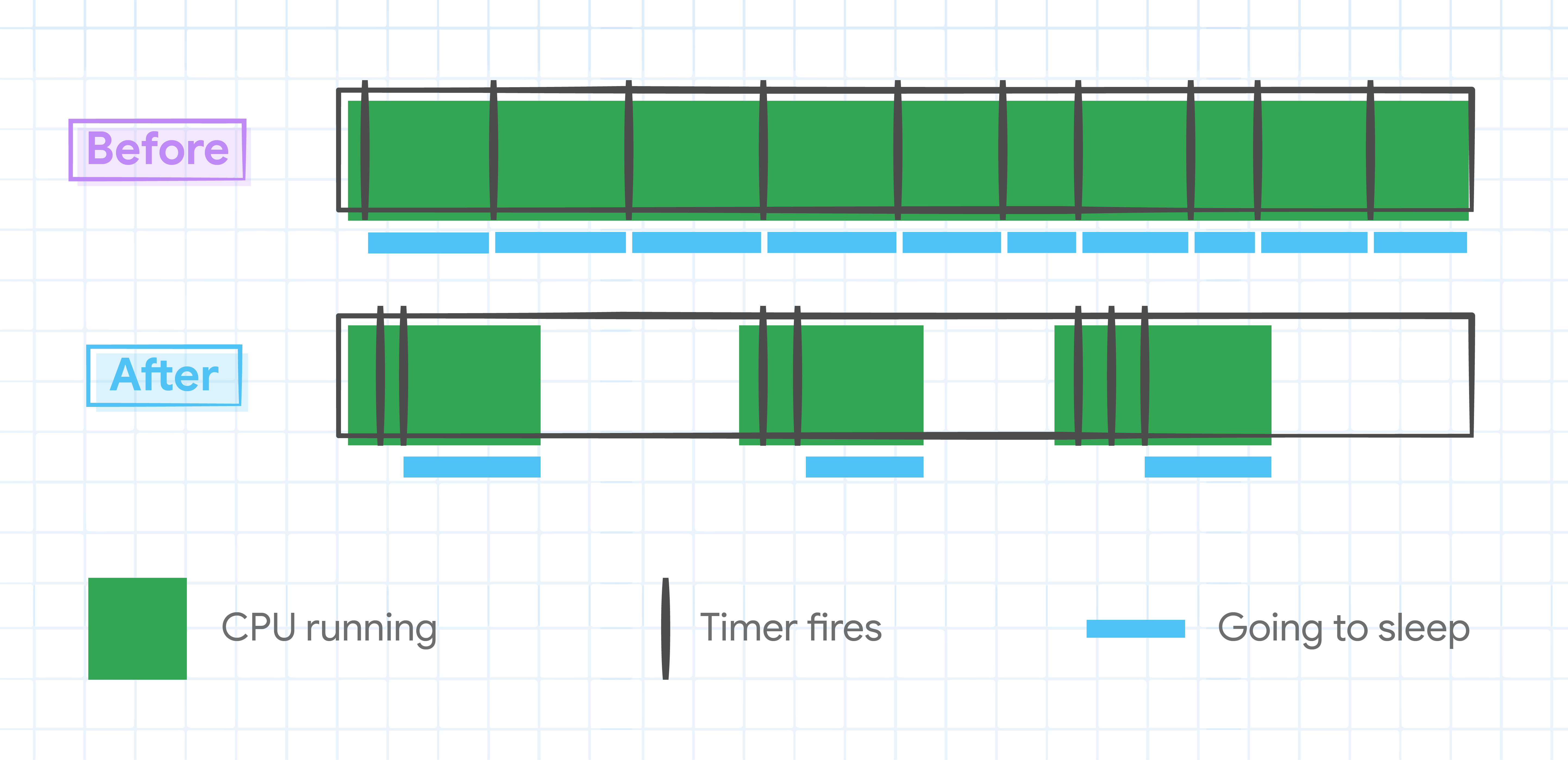Modern web sites and apps can be demanding on your computer's resources, especially battery life. Google is now making further improvements to Chrome's battery usage, specifically on Mac laptops.
Today Google announced that Chrome 111, which starts rolling out on March 1, 2023, includes some new battery optimizations for macOS. The company's own testing says a 13-inch M2 MacBook Pro can now last 18 hours while playing YouTube videos, or 17 hours when browsing the web normally. Chrome's Energy Saver Mode pushes that further by about 30 minutes.
The improved battery life comes from a few engine-level changes, including better memory management for embedded frames, reducing how often JavaScript timers wake up the CPU, and skipping unnecessary redraws when loading pages. Google said, "We navigated on real-world sites with a bot and identified Document Object Model (DOM) change patterns that don't affect pixels on the screen. We modified Chrome to detect those early and bypass the unnecessary style, layout, paint, raster and gpu steps. We implemented similar optimizations for changes to the Chrome UI."
Google didn't mention if these specific improvements will also benefit Windows, Linux or Android, but there have been some cross-platform performance tweaks over the past few months. The behavior of JavaScript timers was changed in Chrome 107 on all platforms, which helped reduce CPU usage and improve battery life. Google also started testing a feature in Chrome 100 that throttled timers on foreground pages, reducing CPU usage by around 4% with apparently no side effects, but that hasn't rolled out to everyone yet.
Source: Chromium Blog


